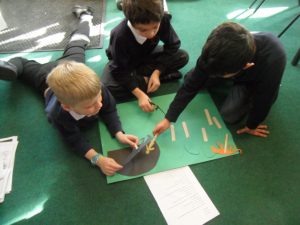High house prices are driving families out of Brighton and Hove, a councillor said during a debate about school places.
Labour councillor Jackie O’Quinn made the comment as councillors were told that, within eight years, four local secondary schools would have too few new pupils to remain financially viable.
She spoke out at a meeting of Brighton and Hove City Council’s Children, Young People and Skills Committee at Hove Town Hall yesterday (Monday 14 June).
The committee was told that parents were being invited to a series of events to share their views about managing projected falling pupil numbers at Brighton and Hove’s primary and secondary schools.
Councillor O’Quinn said: “My concern is a lot of housing that is built in the city is not affordable to families and that is going to continue to be the case.
“My fear is we’re going to carry on losing people for quite a long period of time because the city is too expensive for families.”
Councillor O’Quinn also spoke on behalf of her Labour colleagues who did not attend the meeting to enable social distancing to be maintained.
She said that Councillor Les Hamilton wanted to know about land earmarked for a new secondary school at Toads Hole Valley, in Hove.
The proposed school would have six forms of entry, or 180 pupils a year, for children from 11 to 18.
The council’s head of schools organisation Richard Barker said that planned new homes in Brighton and Hove were not expected to make a big difference to the demand for school places.
By 2030, projection suggested 11 per cent of secondary school spaces would be empty.
Green councillor Hannah Clare, who chairs the Children, Young People and Skills Committee, said that the council had a goal of building up to 1,500 affordable homes in the city.
She said: “Certainly, our focus as a council, as well as from the children, families and learning side, is to build as many affordable homes as we can.”
Councillor O’Quinn also raised concerns about the short timescale for publicising the eight public events and online participation. The online consultation is due to start in less than a fortnight on Monday 21 June.
Mr Barker said that the council’s communications team would widely publicise the public events along with the ability to comment on the Have Your Say page on the council’s website.
The discussions were not a formal consultation so the council could extend the time period.
Conservative councillor Vanessa Brown said that her party supported the recommendations to carry out a pre-consultation programme until mid-July.
She said: “It’ll be interesting to receive the responses from the parents at the public meetings. This should help us when we come to discuss the possible options.
“What we are all agreed on is we cannot ignore the problem. It is very hard to run a successful school with less than 180 per year group.”
Councillor Brown asked what secondary school head teachers had said about the future.
The council’s executive director for families, children and learning, Deb Austin, said that she and her colleague Jo Lyons, the assistant director for education and skills, had met all heads.
She said: “There are a variety of views being expressed by heads, dependent on which schools they represent.
“So far, there is no consensus around the approach we should be taking.”
Consultation events are due to take place on
- Wednesday 23 June – 10am
- Thursday 24 June – 6pm
- Tuesday 29 June – 2pm
- Wednesday 30 June – 6pm
- Thursday 1 July – 10am
- Tuesday 6 July – 10am
- Tuesday 6 July – 2pm
- Wednesday 7 July – 6pm
People will also be able to respond from Monday 21 June until Sunday 18 July on the council’s website.










As far as I can recall, around 15 years or so, -give or take a couple – there was a threat to close a number of primary schools across the city. It was only the addition of Polish and other migrant children that kept them open.